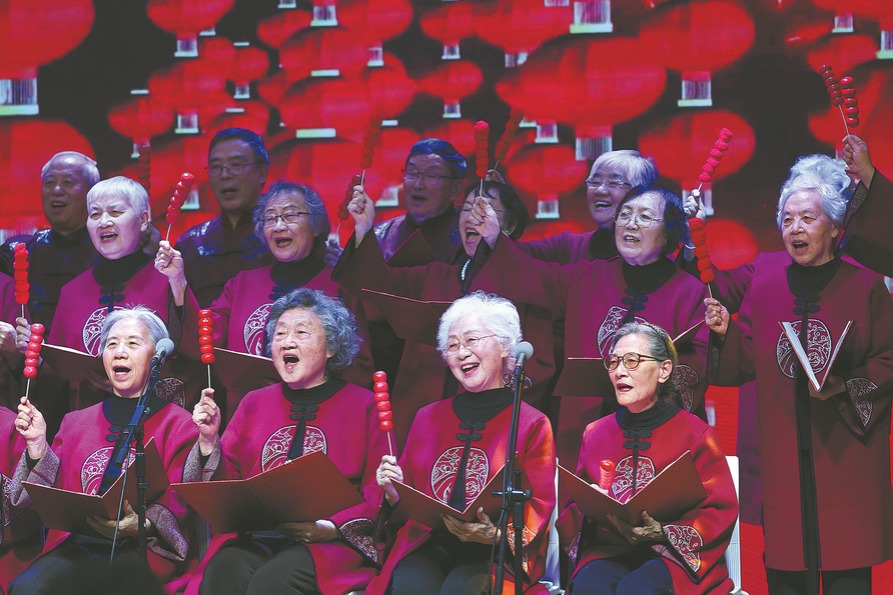Hutong renovations offer more cultural avenues


I've lost track of the number of times some long-term foreign resident has told me that I missed out on the "good times", when Beijing's hutong neighborhoods were full of clubs and bars, and the nightlife was "banging".
As a Gen X'er, who grew up being bored to death by aging Hippies insisting that my generation had missed all the fun (man), I take my nostalgia with a pinch of salt. If, as Yogi Berra — an American baseball player, apparently, not a misspelling of the cartoon bear — is supposed to have said, the future ain't what it used to be, I suspect that neither is the past.
Admittedly, for much of the time I've been here, nightlife has been muted (hello, pandemic), but the suggestion the hutongs are devoid of life is puzzling. I mean Wudaoying and Nanluoguxiang aren't exactly empty on a weekend.
That doesn't mean there haven't been changes. From the mass clearances in the 1990s and 2000s, to the wave of renovation in the late-2010s when many hutong restaurants and bars were closed, life has obviously changed, but as some of these traditional quarters date back to the 13th century, it likely isn't the first time.
While some still find fault — the hutong renovation that shut so many venues being a lingering complaint — others see the changes as an opportunity to be true (r) to the past.
Like Beijing-born Matthew Hu Xinyu, for example.
"People sometimes talk about how quiet the hutongs have become, but many older residents say that, when they were young, that's how things always were. Life took place inside the courtyards, not on the streets."
Preservationist, activist, archivist, historian and collector of memory, since his incarnation as managing director of the Beijing Cultural Heritage and Protection Center, and then project manager at the Shijia Hutong Museum, China representative for The Prince's Foundation School of Traditional Arts and more recently, cofounder of The Courtyard Institute, Hu has been involved in protecting Beijing's heritage for the better part of the last 20 years.
Despite the clearances, there's still plenty left. The precise number of reclaimed siheyuan, or courtyard homes, is difficult to determine, but Hu says that a figure of 250,000 square meters is generally accepted by heritage activists.
"And that's just counting the rooms, not the courtyards," he says, adding that many siheyuan average about 40 sq m of built-up space. Divide that into 250,000, and to paraphrase Mr Plant, you have a whole lotta homes.
But if they aren't to be bars, cafes, clubs, restaurants, or shops, what then? Upscale homes for those with the means? Many have gone that way, commanding rents that would make an emperor blush. Even toward the lower end, a single refurbished room can go for upward of 8,000 yuan a month ($1,123), a figure too hot for most pockets.
Of course, they could be turned into hotels, cultural centers, performance spaces or museums, which would tie into the drive to make Beijing China's cultural, as well as its administrative, capital.
Hu's current project, two compounds down from his institute in Zhonglou Hutong, is taking that route. Occupying one room in an otherwise unrestored siheyuan owned by the daughter of a former employee of Fu Zuoyi, the general who was instrumental in the peaceful surrender of Beiping to the PLA, the new library/community space/museum had its (very) soft opening on June 10.
Although it is now open, it isn't finished. Historical verisimilitude takes time and money and, while the average visitor might not notice that the "reclining silkworm" latticework motifs on many restored hutong window screens are composite pieces and their angles are too sharp, Hu does. Consequently, he's opted to take a slower approach, finishing jobs as and when he has the funds to do them properly. He also has his eye on the rest of the courtyard.
"Perhaps," he says, all wistful innocence, "the authorities will see what we're doing and more will become possible."
Perhaps indeed, for when it comes to giving this (and dare I say any other empty siheyuan) new life, Matthew Hu Xinyu has plenty of ideas to share.
Contact the writer at [email protected]





































